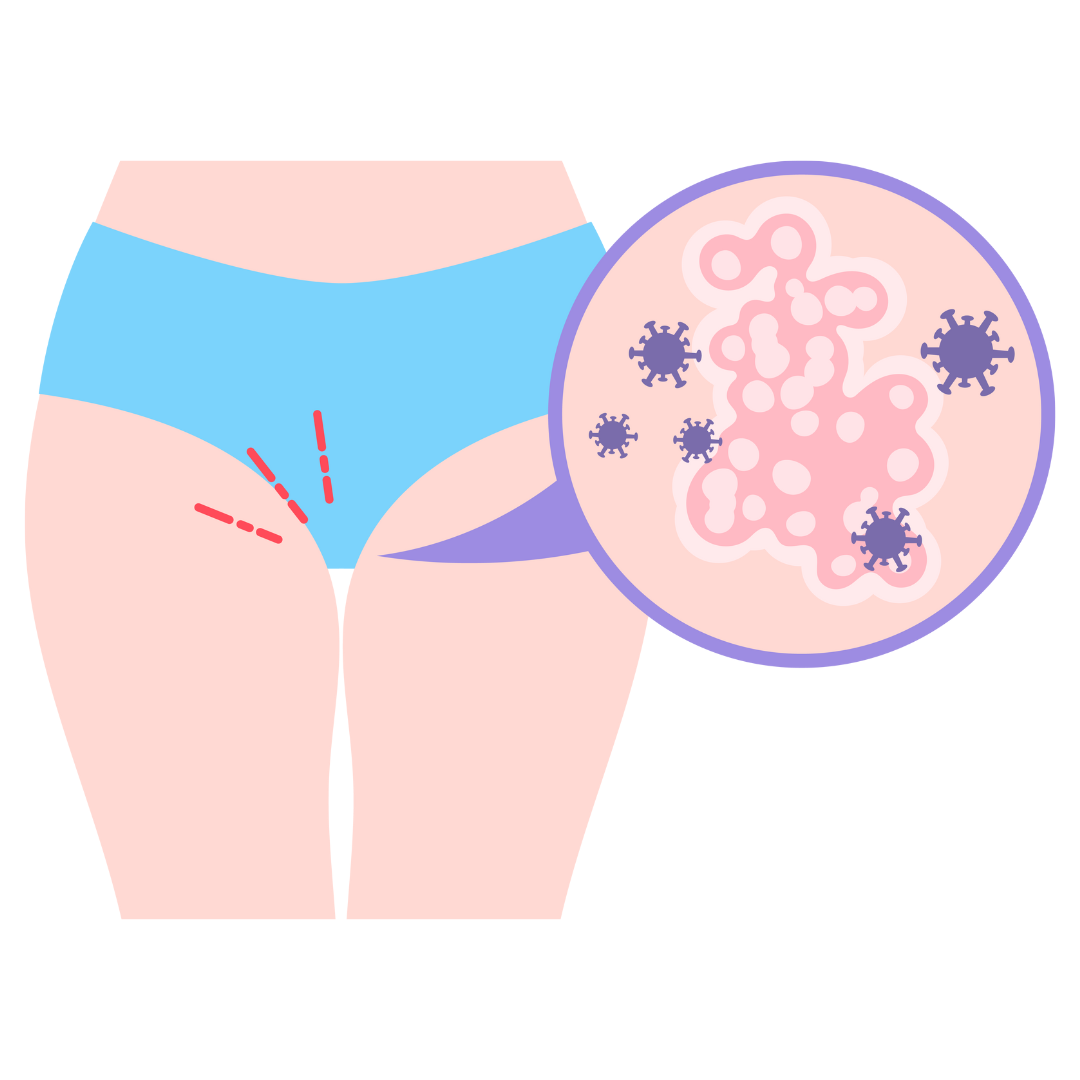
Our body’s microbial ecosystems are interconnected. Recent research has shed light on the relationship between the gut microbiome and vaginal health, as well as other organs in the body. These connections are part of what is called the “female reproductive tract (FRT)-organ axes.” By taking care of the beneficial bacteria in our digestive system, we can indirectly support a balanced and healthy vaginal microbiome and potentially influence the health of other organs.
So, how does gut health affect vaginal health? There is a complex interplay between different microbial communities in our body. The gut microbiome, home to trillions of bacteria, plays a crucial role in regulating our immune system, producing essential nutrients, and even influencing hormone levels. These factors, in turn, can impact the delicate balance of the vaginal microbiome.
The gut microbiome can directly influence the vaginal microbiome through a process called bacterial translocation. Due to the close anatomical proximity of the rectum and vagina, some bacterial species can migrate between these two sites. This means that the composition of your gut microbiota can directly impact the types of bacteria present in your vagina. For example, Lactobacillus species, which are beneficial for vaginal health, can be found in both the gut and vaginal microbiomes. Many bacterial species are shared between the rectum and vagina, often with identical genetic profiles. This direct translocation mechanism highlights the importance of maintaining a healthy gut microbiome to support a balanced vaginal environment. Additionally, the gut microbiome influences vaginal health indirectly by modulating the immune system, producing metabolites that enter the bloodstream, and regulating hormone levels, all of which can affect the vaginal microbiota.
Research has revealed that the female reproductive tract interacts with various organs through what are called “FRT-organ axes.” These include the vagina-gut, uterus-gut, ovary-gut, vagina-bladder, vagina-oral, uterus-oral, vagina-brain, uterus-brain, and vagina-joint axes. Each of these connections highlights how the health of one organ can influence another, emphasising the importance of a holistic approach to women’s health.
By nurturing your gut microbiome, you’re creating a domino effect that can benefit not only your vaginal health but potentially other organs as well. A robust microbiome supports:
- Enhanced immune function, helping keep harmful bacteria in check throughout the body.
- Improved nutrient absorption supporting the growth of beneficial vaginal bacteria.
- Balanced hormone levels, particularly oestrogen, contributing to a healthy vaginal environment.
- Reduced inflammation throughout the body creating favourable conditions for beneficial bacteria.
Research has shown that imbalances in the gut microbiome can be linked to various conditions beyond vaginal health. For example, bacterial vaginosis (a common vaginal dysbiosis) has been associated with an increased risk of urinary tract infections, inflammatory bowel disease, and even certain joint diseases. Additionally, the gut microbiome may play a role in conditions such as preterm birth, polycystic ovary syndrome, and cervical cancer.
Remember, while a healthy gut microbiome can support vaginal health and potentially benefit other organs, it’s not a substitute for proper hygiene and regular check-ups with your healthcare provider. If you experience any unusual symptoms or discomfort, always seek professional advice.
The connection between gut health, vaginal health, and other organs highlights the importance of a holistic approach to well-being. By making simple dietary and lifestyle changes to support your gut microbiome, you’re not only improving your digestive health but also nurturing the delicate balance of your vaginal microbiome and potentially supporting the health of other organs. My name is Ash and I’m a naturopath in the Perth Hills, Kalamunda. If you are seeking support for your digestive or reproductive health, reach out and let’s talk.
References:
Amabebe E, Anumba DOC. Female Gut and Genital Tract Microbiota-Induced Crosstalk and Differential Effects of Short-Chain Fatty Acids on Immune Sequelae. Front Immunol. 2020 Sep 10;11:2184. doi: 10.3389/fimmu.2020.02184. PMID: 33013918; PMCID: PMC7511578.
Takada K, Melnikov VG, Kobayashi R, Komine-Aizawa S, Tsuji NM, Hayakawa S. Female reproductive tract-organ axes. Front Immunol. 2023 Jan 31;14:1110001. doi: 10.3389/fimmu.2023.1110001. PMID: 36798125; PMCID: PMC9927230.
